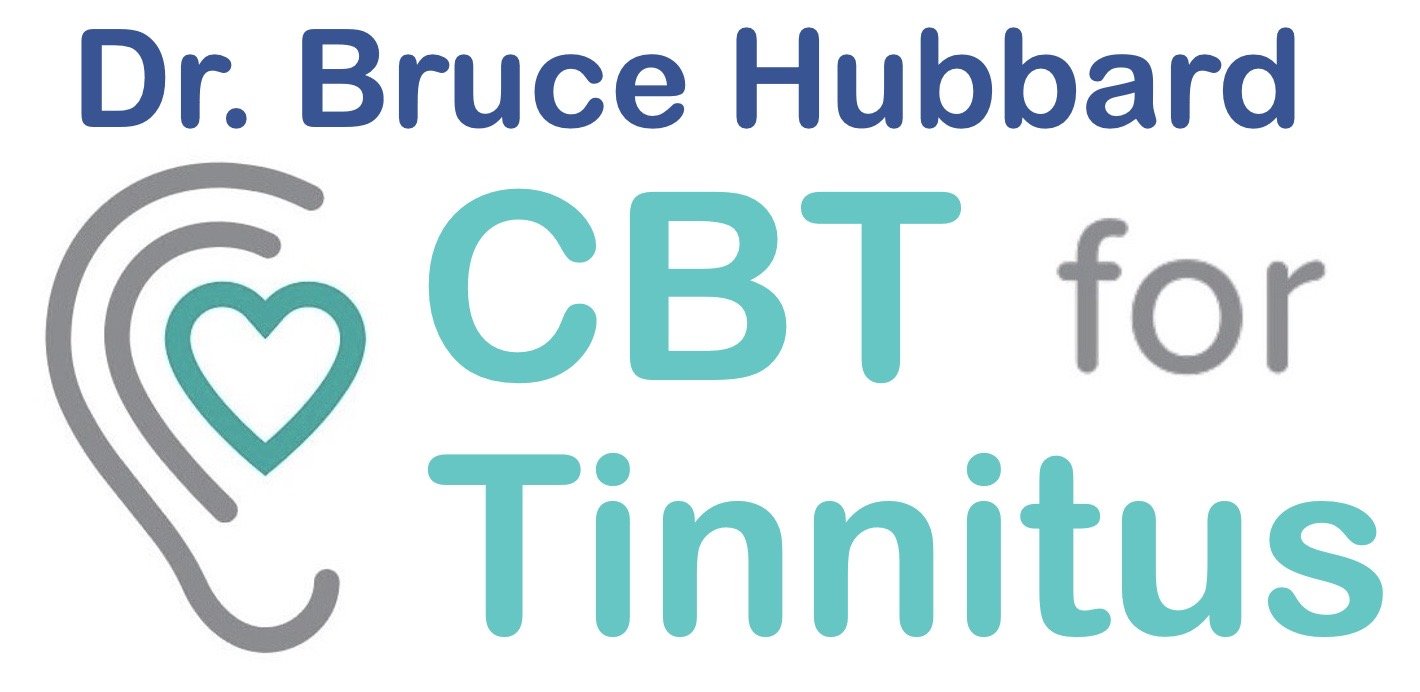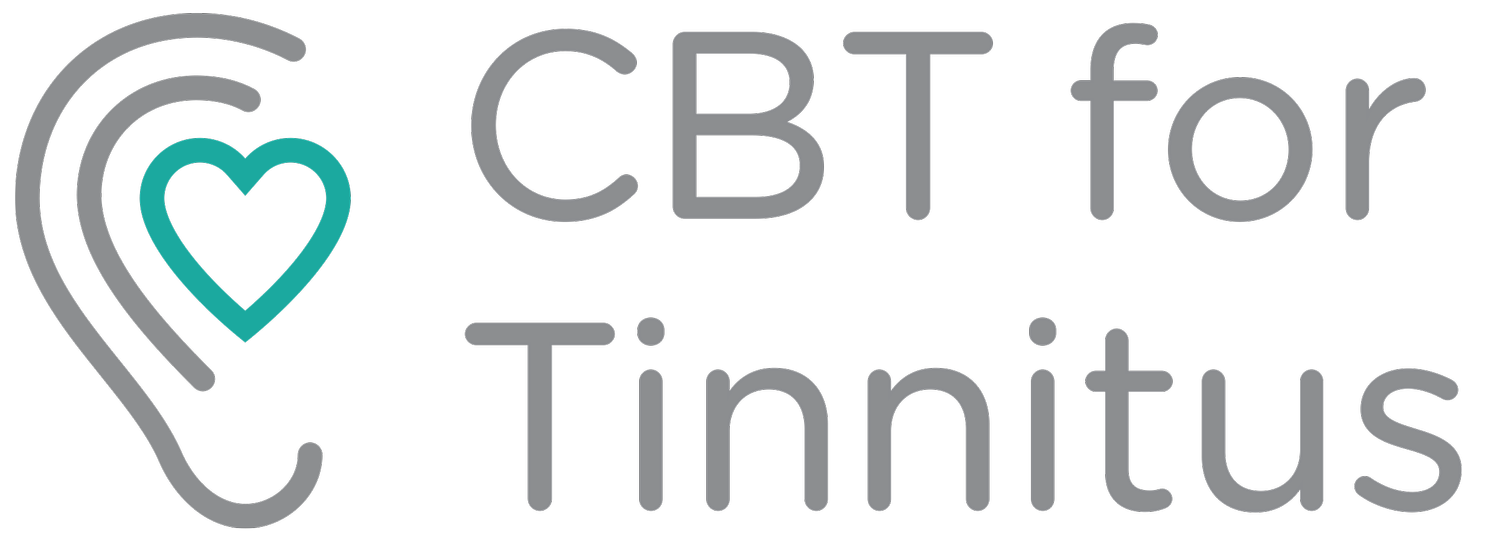HOW CBT FOR TINNITUS WORKS
Bruce Hubbard, PhD
What Is Cognitive Behavior Therapy (CBT)?
Cognitive behavior therapy, or CBT, is a form of psychological treatment widely used for common emotional conditions like anxiety, depression, and insomnia, the very stuff of tinnitus suffering. Numerous studies have found CBT significantly reduces distress and improves quality of life with tinnitus. CBT is the only tinnitus treatment that is truly “evidence-based,” and the only tinnitus treatment recommended by US and European clinical guidelines.
Feel Better, Function Better, and Promote Habituation
Cognitive behavior therapy consists of a set of psychological skills—how we think (cognition), act (behavior), and pay attention (mindfulness)—for accepting and diminishing the negative impact of unwanted realities like tinnitus.
Most CBT for tinnitus programs get it wrong. Modern cognitive behavior therapy is not “change your thinking to change how you feel and behave.” This is an outdated form of CBT that was popular in the 1990s.
When done correctly, today’s CBT for tinnitus emphasizes reality acceptance, maintaining a recovery perspective, and committing to the courageous work of rebuilding full, valued lives with tinnitus. And when done correctly, CBT both helps us feel better and function better now, and promote tinnitus habituation over time.
Why Take a Psychological Approach to Tinnitus?
Surprisingly, research has shown that it’s not the volume, pattern, and pitch of tinnitus but how we respond psychologically to our tinnitus that directs our emotional course. Responses that place great importance on tinnitus, that view tinnitus as a threat, while understandable, fuel the alarm brain’s defensive reaction. We risk falling into the vicious cycle of suffering I call the “tinnitus trap.”
Promote Neuroplasticity to Retrain/Rewire Your Alarm Brain
The goal of CBT is not to change tinnitus, but to change how we respond and relate to tinnitus. Gaining control over our psychological response through CBT is how we take control back from tinnitus. We take the lead, and our alarm brains follow. Respond in a manner that reduces the importance of tinnitus (trust me, it is possible!) and our alarm brains will gradually follow by reducing the intensity of the automatic defensive reaction (habituate). CBT then reduces tinnitus importance to promote neuroplasticity and retrain/rewire our alarm brains to screen tinnitus out.
CBT for Tinnitus Skills
I have carefully selected the most current CBT concepts and skills to create the most up to date, effective tinnitus relief program. These skills can be learned, practiced, and applied where most needed, such as sleep, concentration and leisure (letting go, being at peace).
Commit to Tinnitus Acceptance
Modern CBT for tinnitus begins with a commitment to tinnitus acceptance. By acceptance we don’t mean approval or resignation. We simply acknowledge the fact that we probably cannot reduce or remove the sounds, and instead redirect our efforts to adapting, coexisting, and moving on. Tinnitus acceptance then is a practical decision that helps us calm down and move forward with recovery.
I say “commit” to acceptance because this is generally not an all-or-none process but one that unfolds over time. Like losing a loved one, we must often grieve the loss of a prior quality of hearing, the loss of silence. The significance and duration of this emotional adjustment must be honored.
Develop and Maintain a Recovery Perspective on Tinnitus
Modern CBT is no longer about tracking and challenging negative thoughts. It involves thinking flexibly about the problem, and developing and maintaining an effective perspective to guide and motivate recovery.
Mindfulness of Sound
Mindfulness is an integral part of today’s CBT. When used correctly, mindfulness is more than a relaxation strategy. Mindfulness serves a more important role in helping us accept and coexist with aspects of our experience we desperately don’t want but cannot change, fix, control. In my program, I show you how to use mindfulness to hear your tinnitus effectively, without falling into the gloom and doom thinking, to coexist, and to redirect your attention toward rejoining your life.
Self-Guided Sound Therapy
You’ll learn to take advantage of sound enrichment (sound therapy, masking) from a CBT perspective. My approach, which is modeled after Progressive Tinnitus Management (PTM), uses low cost, open-ear Bluetooth devices and other inexpensive sound sources as needed to soften tinnitus perception and help redirect attention. Because the psychological strategies do the heavy lifting in CBT for tinnitus, sound enrichment can be minimized and is soon phased out.
Take Courageous Action to Fully Rejoin Your Life
Here’s where you apply your new coping skills in service of your top goal: to resume all of the activities lost to tinnitus, to achieve full tinnitus relief, to feel and function like yourself again. I generally advise doing so in a graded manner, and choosing behaviors that are meaningful but may not be pleasurable, and in fact, may at times be uncomfortable (therapeutic exposure). But here is where you’ll get the most bang for your buck!
By accepting some discomfort in service of the greater goal, tinnitus takes a back seat, loses its importance. Tinnitus no longer controls our decisions and actions, we do. And through consistently taking these courageous steps, we gradually rebuild lives worth living.



